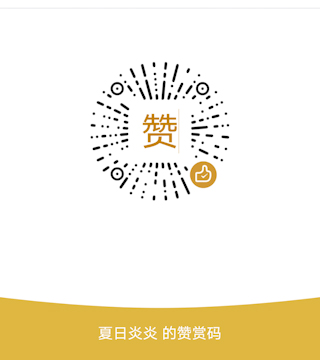中国富人寻求增持海外资产
China’s wobbly response to the bursting of its share market bubble, the devaluation of the renminbi and the mystery over the true health of the economy continue to spook investors.
中国对国内股市泡沫破灭作出的举棋不定的回应、人民币贬值、以及围绕中国经济真实健康状况的神秘感,继续让投资者心惊胆战。
But China’s wealthiest know what to do in these bewildering times: get some of their money out.
但是,中国最富有的阶层知道在当下扑朔迷离的时期该怎么做:把自己的一部分财富转移到海外。
More than 60 per cent of wealthy Chinese surveyed by FT Confidential, an investment research service at the FT, in July said they planned to increase their overseas holdings in the next two years.
在英国《金融时报》旗下投资研究服务《中国投资参考》(China Confidential) 7月调查的中国富人中,60%以上表示,他们计划在未来两年增持海外资产。
Residential property was the most popular investment, followed by fixed-income securities, commercial property, trust products and life policies.
住宅房地产是最受欢迎的投资,其次是固定收益证券、商业地产、信托产品和人寿保险。
A significant proportion of this class are the self-made who have managed to profit from the economic expansion — a phenomenon that has led to large inflows of foreign investment to China.
这个阶层有很大一部分人是白手起家的富人,他们成功地获益于中国经济扩张——这种扩张曾让外商投资大举流入中国。
FT Confidential identified and polled 77 such individuals, divided into those with Rmb6m ($950,000) or more to invest, and a “mass affluent” group with Rmb600,000-Rmb6m.
《中国投资参考》发现了77个这样的富人,并对其做了调查,在此过程中把他们分为两组:一组拥有600万元人民币(合95万美元)以上的可投资资金,另一组是“大众富裕阶层”,财富介于60万至600万元人民币之间。
An attempted rebalancing of the economy towards greater consumption has hit many once-lucrative industries such as energy and low-end manufacturing, putting business owners under stress as profits have slumped.
推动经济向消费拉动型再平衡的尝试,打击了多个一度利润丰厚的行业,如能源和低端制造业。随着这些行业利润下滑,企业主受到压力。
The anti-graft campaign of president Xi Jinping is making the problem worse as private bosses scramble to adjust relationships with the government.
国家主席习近平发起的反腐败斗争使问题更加严重,因为民企老板不得不匆忙调整与政府的关系。
With uncertainty rising at home, rich people have started looking elsewhere to store their wealth.
在国内不确定性上升的情况下,富人们开始寻找其他地方安置自己的财富。
“China’s policy changes so quickly,” said a businessman in Shenzhen. “I am worried about the safety of my wealth.”
“中国的政策变化这么快,”深圳一个商人说,“我担心财富的安全。”
The stock market rout in Shanghai and the policy dilemma it revealed may have underlined those concerns.
上海股市的下跌及其暴露的政策困境,可能使这些担忧更加突出了。
The survey found that 47 per cent of high net worths had earmarked more than 30 per cent of their assets for investment overseas.
调查发现,47%的高净值个人已安排30%以上的资产投资海外。
The US was the preferred destination for 42 per cent of respondents.
美国是42%受访者的首选目的地。
Its economy, plus quality education, is a magnet for China’s wealthy. Next were Hong Kong, Australia, Canada and the UK.
美国的经济和优质教育资源对中国富人吸引力较大。其次是香港、澳大利亚、加拿大和英国。
The top reason for overseas investment, cited by over 38 per cent of respondents, was to gain entry to good schools. As parents send offspring abroad for western education, many are buying flats in college towns.
逾38%的受访者认为,海外投资的首要原因是让子女进入好学校。许多把子女送到海外接受西方教育的父母,都在大学城购买公寓。
Official data show that 460,000 Chinese students went abroad for education in 2014, up from 115,000 a decade ago.
官方数据显示,2014年有46万中国学生赴海外留学,远高于10年前的11.5万。
China’s high net worth families had shifted from making as much money as they can to protecting their wealth, said Shang Dai, chief executive of Kuafu Properties, a New York developer that draws funds from Chinese investors.
向中国投资者募资的纽约开发商——跨富地产(Kuafu Properties)的首席执行官戴上表示,中国的高净值家庭已从尽力赚钱转向保护自己的财富。
Many parents are buying properties to ensure their children go to top schools. Long Island, east of New York City, has seen an influx of Chinese housebuyers seeking high-quality public schools.
许多父母为了确保子女能上一流学校而购买房地产。例如,中国购房者最近涌入纽约市以东的长岛,因为他们看上了这里的高质量公立学校。
Jennifer Lo, a broker at Douglas Elliman, says Chinese investors formed a quarter of buyers of homes worth $3m and above in Nassau county, from January 2013 to February this year.
Douglas Elliman经纪人詹妮弗?罗(Jennifer Lo)介绍说,从2013年1月到今年2月,中国投资者占长岛拿骚县300万美元及以上住宅买家的四分之一。




